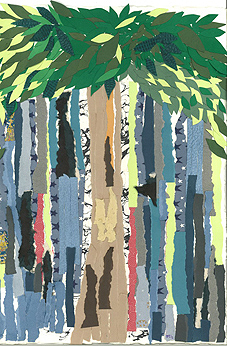The Global South and Cultural Struggles: On the Afro-Asian People's Solidarity Organization
Duncan McEachern Yoon
You, brothers from Asia, invite us to defeat the historical mystification that aims to present a certain culture as the peak of universal culture. And through your work, through your research and by means of your triumphs, you have proved that universal culture, the conception of a man to [the] size of the world, have only just started. We say: This is exactly what we wanted to affirm. - Frantz Fanon (Speech at the Closing Session Second Afro-Asian People’s Solidarity Organization Conference Conakry, Guinea April 15 1960) I would like to begin by juxtaposing this little-known speech given by Frantz Fanon in my epigraph with Satya P. Mohanty’s statement in the Frontline interview (6 April) concerning the importance of excavating “alternative modernities“: If it is likely that there are various forms of modernity, the concept of modernity can be disaggregated−that is, its constituent features can be taken apart and imaginatively re-examined in new combinations in different social and cultural contexts. Mohanty’s notion that the components of modernity may be reformulated can be read into the goals of the Afro-Asian People’s Solidarity Organization (AAPSO). Formed after the Bandung Conference of 1955 in Indonesia, the AAPSO became one of the most vibrant and contentious forums for the creation of solidarity links−economic, political, and cultural−within a rapidly decolonizing Third World. Alternative modernities, understood as intricately connected to questions of alternative paths of development, became one of the main issues during these conferences. In what follows, I would like to take up and help expand Mohanty’s notion of a “disaggregated modernity“ through a brief examination of Fanon, the cultural policies of the AAPSO, and its accompanying Writers Bureau. These cultural policies gave rise to the publication of a number of literature anthologies, as well as the journal Lotus, in which questions of modernity, development, culture, and humanism took center stage. Pages: 1 2 3 4 5 6 |
Essays in this Forum
Rethinking the Global South
by Mukoma Wa Ngugi From Indian Literature to World Literature: A Conversation with Satya P. Mohanty by Rashmi Dube Bhatnagar and Rajender Kaur Asia in My Life by Ngugi wa Thiong'o The Global South and Cultural Struggles: On the Afro-Asian People’s Solidarity Organization by Duncan Mceachern Yoon The Fault Lines of Hindi and Urdu by Sanjay Kumar Reframing Colonialism and Modernity: An Endeavour through Sociology and Literature by Gurminder K. Bhambra Varieties of Cultural Chauvinism and the Relevance of Comparative Studies by Tilottoma Misra Literature to Combat Cultural Chauvinism: A Response by Shivani Jha Is There an Indian Way of Thinking about Comparative Literature? by E. V. Ramakrishnan Modernity and Public Sphere in Vernacular by Purushottam Agrawal West Indian Writers and Cultural Chauvinism by Jerome Teelucksingh Oral Knowledge in Berber Women’s Expressions of the Sacred by Fatima Sadiki |
